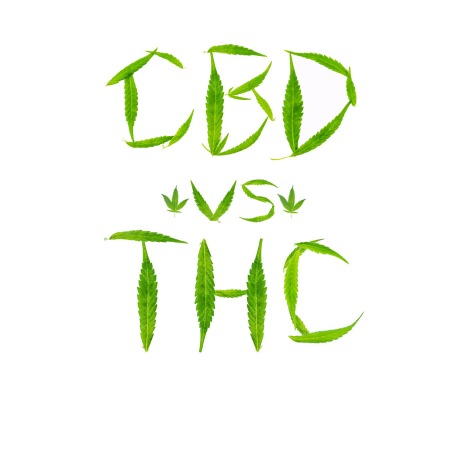Understanding the Difference Between THC and CBD: Effects, Benefits, and Drawbacks
Cannabis, a plant with a rich history of medicinal and recreational use, contains over 100 different compounds known as cannabinoids. Two of the most well-known and studied cannabinoids are THC (tetrahydrocannabinol) and CBD (cannabidiol). While both are derived from the cannabis plant, they have distinct effects, benefits, and drawbacks. Understanding these differences can help you make informed decisions about their use.
THC: The Psychoactive Component
Effects: THC is the primary psychoactive compound in cannabis. It’s what gives users the characteristic “high” associated with marijuana use. When THC is consumed, it activates the brain’s reward system by signaling the release of dopamine, a neurotransmitter that creates feelings of euphoria and pleasure. This psychoactive effect is what many recreational users seek.
Benefits: THC has been found to have several medicinal benefits. It can help with pain relief, making it useful for conditions like chronic pain and arthritis. It also has anti-nausea properties, which are beneficial for patients undergoing chemotherapy. Additionally, THC can stimulate appetite, making it helpful for individuals with conditions that cause a loss of appetite, such as HIV/AIDS or eating disorders.
Drawbacks: The psychoactive effects of THC can also lead to several drawbacks. High doses or prolonged use can cause anxiety, paranoia, and even psychotic episodes in some individuals. It can impair short-term memory and motor skills, making activities like driving dangerous. Additionally, THC can be addictive, with some users developing a dependence on the substance.
CBD: The Non-Psychoactive Component
Effects: Unlike THC, CBD is non-psychoactive, meaning it doesn’t produce a high. Instead, CBD interacts with different receptors in the brain and body, promoting a sense of calm and relaxation without altering perception or consciousness. This makes it an appealing option for those seeking the medicinal benefits of cannabis without the mind-altering effects.
Benefits: CBD has gained popularity for its wide range of potential health benefits. It has strong anti-inflammatory properties, making it effective in treating conditions like arthritis and multiple sclerosis. CBD is also known for its anti-anxiety effects, providing relief for those suffering from anxiety disorders without the side effects associated with traditional medications. Furthermore, CBD has shown promise in reducing seizures in individuals with epilepsy, particularly in drug-resistant forms of the condition.
Drawbacks: While CBD is generally well-tolerated, it can interact with certain medications, potentially leading to adverse effects. Some people may experience side effects like dry mouth, diarrhea, reduced appetite, and fatigue. Additionally, because the CBD market is not strictly regulated, there can be inconsistencies in product quality and labeling, leading to variations in effectiveness.
Comparing THC and CBD
Both THC and CBD have their unique benefits and drawbacks, and the choice between them largely depends on individual needs and preferences. Here’s a quick comparison:
- Psychoactivity: THC is psychoactive; CBD is not.
- Medical Benefits: Both have medicinal properties, but THC is more effective for pain relief and appetite stimulation, while CBD is more effective for reducing inflammation and anxiety.
- Side Effects: THC can cause psychoactive effects and potential dependency; CBD has fewer side effects but can interact with medications.
- Legality: The legality of THC and CBD varies by jurisdiction, with CBD often having fewer legal restrictions due to its non-psychoactive nature.
Conclusion
Understanding the differences between THC and CBD is crucial for making informed decisions about cannabis use. Whether you seek the euphoric high of THC or the calming effects of CBD, both cannabinoids offer valuable benefits for a variety of conditions. Always consult with a healthcare professional before starting any new treatment to ensure it’s safe and appropriate for your individual health needs.

